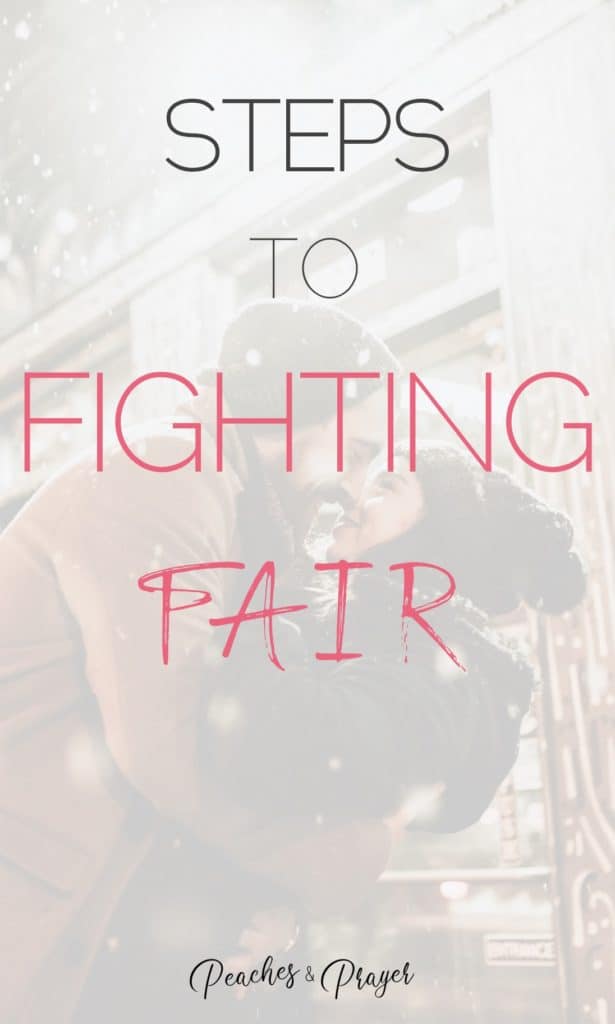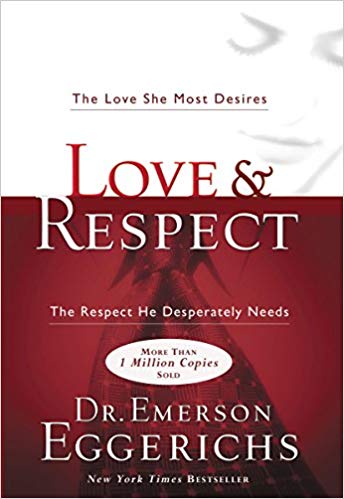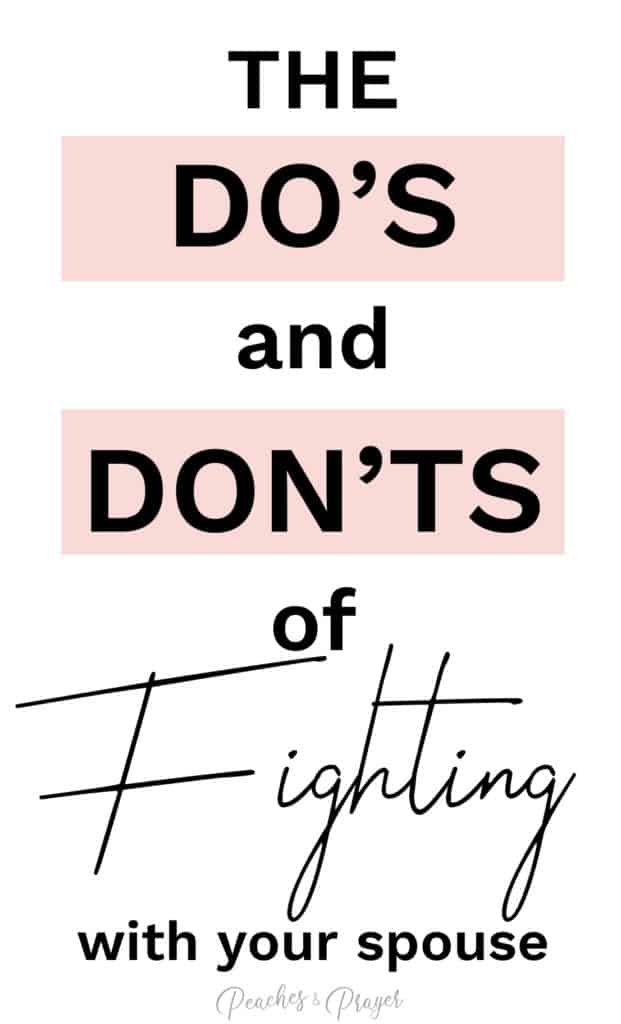How To Fight Fair – 7 Steps to Healthy Conflict
Want to learn how to fight? Sounds wrong, right? However, learning to

In my experience, men hate fighting. Most men don’t think it is necessary at all. I, on the other hand, think the complete opposite. I love communicating and hashing out details, thoughts
I’m over here like, “Hey sit down, let me tell you all about myself and my problems with you.” And my husband is like, “Ah, how about we don’t.” Then, to avoid conflict, he remains quiet. I married the strong, silent type. He married a counselor.
How to Fight Fair: Why Fighting Is Good
Fighting is communicating about your relationship in an effort to make it better for the both of you. Where fighting goes wrong is when it is too accusatory, hurtful or vicious.
If we fight fair, no one’s feelings will be hurt and we will have communicated an issue that was affecting our relationship. We will know how to best avoid the same issue, in the future, and have a plan.
I’m a total planner, so that is probably why I crave this. I like knowing what is coming and how to best deal with it. My husband is like a fly by the seat of his pants type person. Opposites attract, that’s for sure!
I think God makes us attracted to people who are different than we are. So, then we are challenged to grow.

**Disclaimer** Author has a master’s degree in counseling, but is not your counselor, nor a practicing counselor. If you find yourself in an abusive relationship, please seek professional assistance as this article may not pertain to you.
How To Fight Fair: The Do’s & Don’ts
Do: Stay Calm
Something I learned while counseling was that, if someone gets upset during a discussion and their emotional intensity rises, the other person will become
The Problem: When two people, in an argument, are emotional, no one is being rational. It is hard to even hear the other person when we are passionately mad.
The Solution: Learning to stay calm even when someone is fired up is super important. They can be all fired up but you can take deep breaths and remain calm which will actually help them to calm down, too.
Do: Use “I” Statements
Usually when we fight, it sounds something like this… “You are always late.” “You never stick to our budget.” “You aren’t loving enough.”
The Problem: “You” statements put the other person on the defensive. So prepare for a retaliating blow. Also, never and always statements are too generalizing of your partner.
The Solution: Use “I” statements. “I feel anxious, when we are not on time.” “Our budget is really important to me; I feel disrespected when it is changed.” “I love it when you give me a half hour of your attention each day; I miss you when we don’t have quality time without computers and phones.”

Did I Marry the Wrong Person? Did you…? Find out here.
Do: Stay on topic
Learning to stay on topic with your fight is important. So bringing up old hurts will not get you very far. Working on one issue at a time is important so that the other person doesn’t feel like you are keeping a tally of their wrongs. Your resentment about past issues will make them defensive.
don’t: Criticize
When you’re
The Problem: Just like “You” statements, being critical puts the other person in a defensive mindset.
The Solution: Think of how you would like to be confronted by your partner if the roles were reversed. What would you want him to say? How would you hope he would approach you with the problem? Gentle and calmly, I’m sure.
Don’t: interrupt
The Problem: It is disrespectful to interrupt. It adds to the resentment the other person is feeling during the disagreement.
The Solution:
Try to hold your piece until the other person is finished with their thought. If you’re like me, interrupting is so natural when you feel wrongly accused.

You can find my favorite book on learning how to Love & Respect your spouse here.
Do: ask for what you need
The Problem: If you are not telling the other person exactly what you expect, want or need, they will not know what you are wanting them to do, in the future. Therefore, you can expect to have this same argument for several more years. Ha!
If you simply repeat how they have hurt you or annoyed you, they aren’t learning what you’re hoping for next time.
The Solution: Without adding emphasis on your feelings, say exactly what you need or want of the other person. For example, “I need you to be on time so that I am not late for work. If this isn’t possible, then we will need to find someone else to watch the kids, so I can get to work on time.” No feelings included in the statements, just blunt and practical statements.
Another example, “I want to spend more time with you. Is there something that we can do together that you enjoy?”
When my husband and I were newlyweds, I would complain that we never did anything fun together. We would have the same conversation over and over. “What do you want to do?” “I don’t know, what do you want to do?” So, we would end up watching t.v. and not doing anything with our time together.
Eventually, I learned that we both enjoyed taking care of our home together, cleaning the yard, cleaning the garage and organizing our basement. (I know, we are a super thrilling bunch.) We would talk more and enjoyed accomplishing something together. So now, I specifically suggest something that we do together. My husband needs me to be specific with him or he is unclear about what I want or expect. You can read more about my newlywed expectations here.
Do: Always apologize
Arguments derived from both parties having expectations of each other that may or may not be very realistic. An apology from both parties is really helpful in reducing resentment in a relationship.
The Problem: It is hard to apologize when you’re not completely over the argument or situation that lead to the argument. When apologizing hurts our pride, it can lead to fake apologies.
Fake apologies sound like this… “I’m sorry, but…”
The Solution: Practice makes perfect! The more you apologize, for your part in the situation, the easier it will be. When only one person is apologizing, resentment builds. God calls us to forgive regardless of received apologies. However, it is much easier to forgive if we take the time to admit our fault in the situation.
Real apology: “I’m sorry, I should have been more specific with you about what I wanted.”
Fight Fair = Healthy Relationships
The best part about these tips is that you can apply them to any relationship in your life. Fighting in a long term relationship is inevitable. We are two different people with different expectations; but to fight fair isn’t brutal. Fighting fair is a crucial element
Have you found topics in your relationship that just set your partner off? How do you navigate through those situations? Hopefully, you can add fighting fair to your toolbelt and it can have a positive impact on your relationship.
Don’t forget: Praying for your spouse is one of the best things you can do for your relationship!

Enjoy This? Pin it for Later!












I love the wisdom here and excited that I’m doing most of this. Need to work on the not interrupting, though. Pinning this!
Good Work! I know haha so hard! Thank you 🙂
Jenna, these are such great tips! I also love the book “Love and Respect” and just recommended it on a post I recently wrote! Thanks for using your counseling expertise to help us all have better communication in our marriages! Hopping over from #BVN! 🙂
Oh funny! Yes, great book!! Thank you 🙂
I’m the husband and I appreciate all the wonderful truths in these works. I ask anyone that reads this to please pray for my marriage, it’s only been just over three years but it’s been a struggle since; mainly financially as a primary issue. I love my wife dearly and don’t want to lose her; prayers please!
I will be praying for your marriage, David!!!